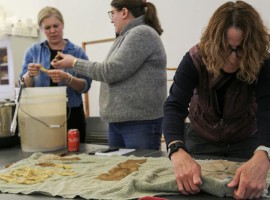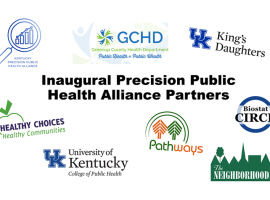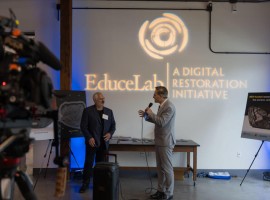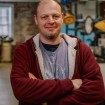UK Physiologist Uses Biomechanics to Understand Lung Healing
As a child, Chris Waters was always curious about how things worked. His inquiring mind led him on a path from chemical engineering to biomedical engineering to his current work on a dangerous condition called acute respiratory distress syndrome (ARDS).
The mortality rate for this acute lung injury is high — almost 40 percent of ARDS patients die. Appropriate mechanical ventilation makes a huge difference in their prognosis.
For Waters, who is now the Dr. Donald T. Frazier Professor of Physiology in the University of Kentucky College of Medicine, the $64,000 question is “Why?”
“Typically, a wound’s healing process occurs on a substrate that’s not moving,” Waters said. “But with the act of breathing, the lungs constantly stretch and retract. So how does healing happen in spite of this constant movement?”
Actually, it’s more like a million-dollar question, as Waters’ work is supported by two grants from the National Heart Lung and Blood Institute. He began these projects before he came to UK in December of last year with his wife Teresa Waters, who is the Charles T. Wethington, Jr. Endowed Chair in the Health Sciences. But he says new collaborations with UK researchers in his own college, the College of Medicine, as well as in the College of Arts & Sciences and College of Engineering will greatly enhance his work.
“UK is really on the upswing in terms of research,” he said.
Watch this episode of “People Behind Our Research” to learn about Waters’ research, his love of teaching and his appreciation for the “vibrant” environment that permeates the UK campus.





